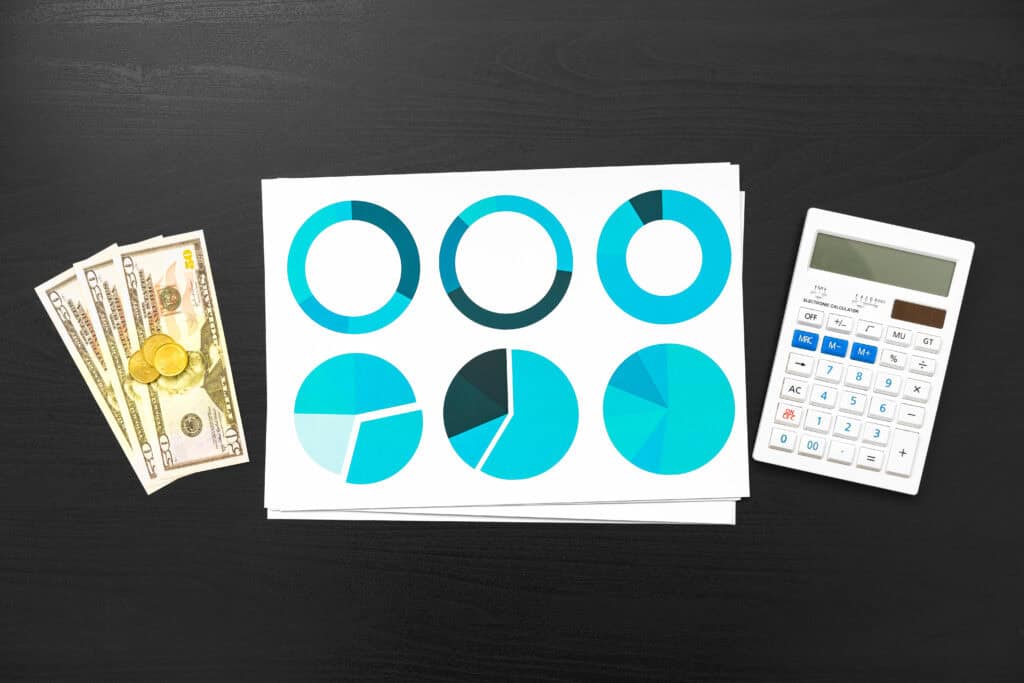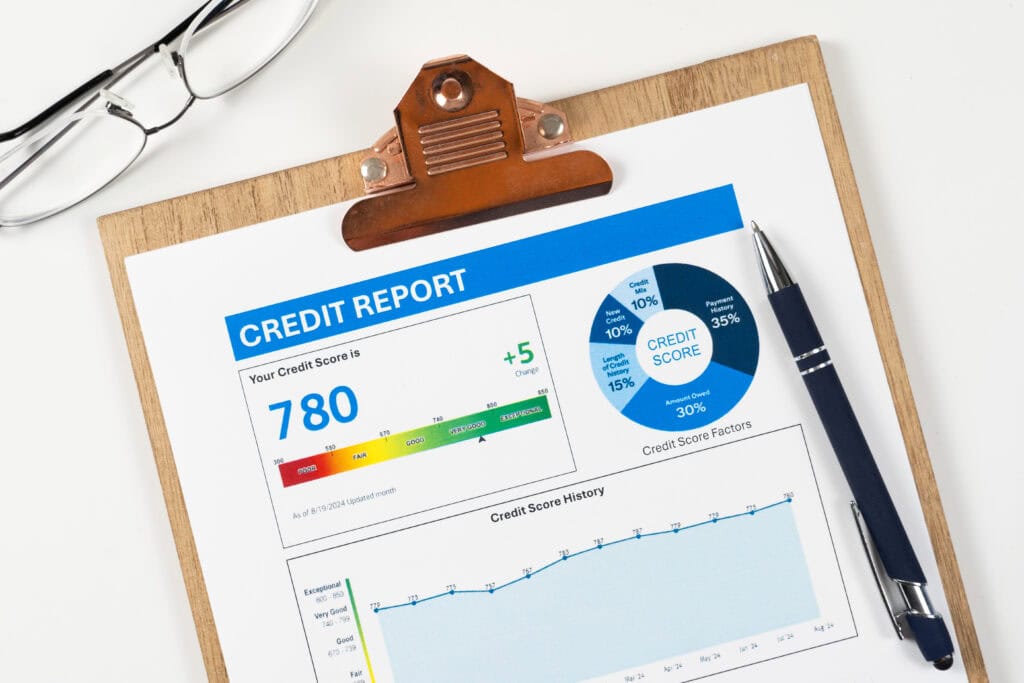How to Master Personal Finance 101: Tips That Rich People Don’t Share

The pensioner calculates utility costs. Elderly woman hands are counting finances on a calculator
Look, I’ll be straight with you – money talk makes me anxious. Always has. But here’s something that’s been eating at me: college grads make than high schoolers over their lifetimes. That’s not pocket change, you know?1.2 million more
Part of me thinks we’re all just winging it with our finances, but then again… maybe some people actually know what they’re doing.
This personal finance 101 guide is all about uncovering those secrets and boosting your financial literacy. It’s time to dive into understanding finances and discover the personal finance prime directive that could change your financial future.
I’ve been losing sleep over this stuff, tossing and turning about why nobody taught us these fundamentals of personal finance in school.
Why do the wealthy seem to have some secret playbook while the rest of us are fumbling around with our paychecks?
But here’s what I figured out – it’s not about making tons of money. It’s about not screwing up with whatever you’ve got.
That’s the core of basic personal finance. It’s about mastering financial fundamentals and implementing smart personal finance tips that can make a real difference.
My gut says it’s time to spill everything. All those money management tricks that rich people use but never really talk about? We’re putting them right here. No more keeping secrets.
I mean, what’s the worst that could happen if more people knew how to handle their money properly? Actually, don’t answer that – the wealthy probably wouldn’t love it.
Ready to peek behind the curtain? Let’s figure out this personal finance 101 stuff together. It’s time for a finance tutorial that actually makes sense.

Where the Hell Do I Even Start With This Money Thing?
Honestly? The whole “where does my money go” question has been driving me nuts. I used to think budgeting was this boring spreadsheet torture, but it turns out it’s actually… kind of the point of everything. Let’s dive into some saving 101 strategies that can change your financial game.
Budgeting Strategies: Your Secret Weapon
Here’s what nobody tells you about budgets – they’re not about restricting yourself into misery. They’re about finally knowing what’s happening with your cash. It’s a crucial part of understanding finances.
A budget basically introduces your income to your expenses and forces them to play nice together. Instead of your money disappearing into some black hole, you get to boss it around for once. Think of it as your personal spending plan.
Look, when you budget, you stop being a victim of your own spending. This one thing helps you:

- Actually see where your money vanishes
- Find the stupid expenses you forgot about
- Save for stuff that matters
- Sleep better at night because money stress sucks
Get this – 62% of people who budget feel way less stressed about money. Makes sense, right? No more wondering if you can afford groceries this week.
And here’s the thing about having an in your budget – when your car breaks down or you need a root canal, you’re not completely screwed. Even throwing twenty bucks a week at it adds up faster than you’d think.emergency fund
Tracking Spending Without Wanting to Cry
I used to think tracking every purchase was insane. Who has time for that? But turns out, you can’t fix what you don’t know about. This is a key part of finances 101 – tips on opening a savings account won’t help if you don’t know where your money’s going.
Start simple – just write down everything for one month. Yeah, everything. Even that random gas station energy drink. This shows you exactly where your money’s going and trust me, some of it will surprise you.
Make it stick by:
- Pick whatever method won’t make you want to quit (phone app, notebook, whatever)
- Set a time to update it (I do Sunday mornings with coffee)
- Group similar expenses so you can spot patterns
- Give yourself credit for small wins
The point isn’t to judge yourself for that late-night pizza order. It’s just about knowing. Once you know where each dollar goes, you can decide if that’s actually where you want it to go.
Most banking apps do the categorizing automatically now, which saves you from going crazy trying to track every little thing.
The 50/30/20 Thing and Why It Might Not Work for You
Elizabeth Warren came up with this that everyone talks about. It’s pretty straightforward:50/30/20 rule
- 50% for stuff you actually need (rent, food, minimum debt payments)
- 30% for stuff you want (takeout, Netflix, that expensive coffee habit)
- 20% for savings and paying off debt faster
The cool thing about this rule is it’s not some complicated system. You don’t have to assign every single dollar a job – just these three big buckets. It makes you feel like you can actually handle your money instead of drowning in it.
But here’s the catch – it doesn’t work for everyone. Most Americans spend way more than 50% on necessities. In 2023, the but spent over $4,200 monthly just on the basics. That’s already busting the 50% thing.typical household earned around $88,000 after taxes
If the standard split doesn’t fit your life, try these instead:
- 60/20/20 if your rent and bills eat up more than half your income
- 30/10/60 if you’re older and panicking about retirement
- 40/30/30 if you want to balance enjoying life with building wealth
The magic isn’t in following some perfect percentage. It’s about making a system that actually works for your weird, messy, real life. Your budget should help you spend money on what matters to you, not make you feel guilty about everything.
The Habits Nobody Talks About But Everyone Should Know
Rich people didn’t get lucky – they just figured out a few tricks way earlier than the rest of us. Took me forever to realize this, but better late than never, right? This is where personal finance 101 really starts to make a difference. Let’s explore some key personal finance tips that can transform your financial habits.
Pay Yourself First Sounds Backwards But It Works
Here’s the thing that blew my mind: “pay yourself first” has nothing to do with buying yourself stuff. Zero. It’s actually about before you pay anyone else – even your rent.setting aside 5-10% of your income
I know, I know – sounds totally backwards. How can you pay yourself before paying bills?
But here’s what I figured out: once money hits your checking account, it’s basically gone. Your brain sees it as spendable cash. The trick is grabbing your piece before you even see it.
Here’s what actually works:
- Find places in your budget to trim back (there are always some)
- Start stupid small – even $25-50 monthly builds the habit
- Open separate accounts for different goals
- Treat your savings like another bill you can’t skip
Look, I’m not gonna sugarcoat it – this felt weird at first. But consistency beats everything else when it comes to building wealth.
Automation Saves Your Brain Power
Every money decision you make drains your mental battery. Coffee or no coffee? Pay this bill now or later? Where should this extra $50 go?
By the end of the day, you’re mentally fried and making dumb choices.
solve this problem completely. Set it up once, then forget about it. Your money moves where it needs to go without you thinking about it.Automatic transfers between accounts
Rich people automate everything because it:
- Keeps them investing even when markets look scary
- Prevents late fees from forgotten bills
- Removes the temptation to spend savings money
- Maintains focus on long-term goals instead of daily decisions
Pro tip: keep one month of expenses saved up before automating everything. Trust me on this one – you’ll sleep better knowing overdrafts aren’t a possibility.
Rich People Use Boring Savings Accounts (But Not How You Think)
This one surprised me. Millionaires do use regular savings accounts, but not the way most people think.

They’re not parking millions in accounts earning 0.5% interest – that would be financial suicide since inflation eats away at purchasing power.
Instead, they use savings accounts strategically:
- Emergency funds covering 3-6 months of expenses
- Cash for big purchases happening within a year
- Ready money for investment opportunities
Their checking account balances vary wildly – some keep $10,000, others maintain $150,000. The amount doesn’t matter as much as the purpose.
Here’s what they know that most people don’t: traditional savings accounts have been useless for decades. Smart money goes into government money market funds and treasury options that actually pay something decent while staying accessible.
The bottom line? Start with one of these habits this week. Seriously – which one could you set up before Sunday?
Credit Cards Are Basically Financial Quicksand
Okay, here’s something that’s been bugging me for months – credit feels like free money until it absolutely destroys you. I’m talking from experience here, and it’s not pretty. This is a crucial part of personal finance 101 that often gets overlooked. Understanding how to manage high-interest debt is key to your financial health.

Credit Cards Mess With Your Brain in Weird Ways
This is embarrassing to admit, but I used to think I was being smart with my credit card. Paying it off every month, you know? But then I started noticing something… I was spending way more than when I used cash.
Turns out there’s actual research on this – people spend more with plastic than cash, making bigger purchases and more impulse buys. It’s like your brain doesn’t register it as “real” money.
Even worse? Even if you pay your balance in full, credit cards can still screw up your budget. The timing gets all wonky, and suddenly you’re short on cash for groceries because you forgot about that big purchase from two weeks ago.
The numbers are getting scary too. . With interest rates climbing, people are drowning faster than ever.Average credit card balances jumped 13.2% to $5,910 in 2022
And don’t get me started on the fees – they’re everywhere:
- Annual fees (anywhere from $20 to hundreds)
- Cash advance fees (2-3% plus higher interest)
- Foreign transaction fees (around 2.5%)
- Late payment fees (up to $40)
- Balance transfer fees (1-3% of what you transfer)
Your Credit Score Controls More Than You Think
This part keeps me up at night sometimes – your credit score isn’t just about getting loans. It affects your insurance rates, job prospects, even where you can live.
Payment history is 35% of your score. One late payment? Boom, your score takes a hit. Your – basically how much of your available credit you’re using – makes up another 30%. Experts say keep it under 30%.credit utilization rate
Here’s what actually moves the needle:
- Pay everything on time, every single time
- Keep old accounts open (even if you don’t use them)
- Stop applying for new credit unless you really need it
- Check your credit reports for mistakes
- Keep your balances low

Snowball or Avalanche? Both Work, But Differently
When you’re drowning in debt, you’ve got two main escape plans. I’ve tried both, honestly. These debt management strategies can be game-changers in your personal finance journey.
The snowball method hits your smallest debt first while paying minimums on everything else. Once that’s gone, you roll that payment into the next smallest debt.
I’ll be real with you – this one feels good. Watching debts disappear gives you these little victories that keep you going. Sometimes motivation matters more than math.
The avalanche method goes after your highest interest rates first. You’ll save more money this way by killing those expensive interest charges faster.
Here’s the math: if you’ve got $10,000 in credit card debt at 18.99%, $9,000 in car loans at 3%, and $15,000 in student loans at 4.5%, .the avalanche method saves you about $500 in interest
Which one should you pick? Depends on your personality, really. Need those quick wins to stay motivated? Go snowball. Disciplined enough to stick with the plan and want to save money? Avalanche makes more sense.
The trick is picking one and actually sticking with it. I mean, what good is the perfect strategy if you quit after two months?
This Investing Thing Has Been Eating at Me
Okay, I’m gonna be honest here – this whole investing thing used to make my head spin. All the jargon, all the complicated strategies… it felt like some exclusive club I’d never get into.
But then it hit me like a ton of bricks: we’re all getting screwed if we’re just saving. This is where investing basics come into play as a crucial part of personal finance 101. Understanding concepts like IRAs, mutual funds, and ETFs can make a huge difference in your financial future.

Your Savings Account is Quietly Robbing You
Here’s what’s been keeping me up at night – inflation is eating our money alive. Your savings account paying 0.35% interest? That’s a joke when inflation’s running at 2-3% every year.
I ran the numbers because I’m obsessive like that. Ten grand sitting in savings for five years? You’re down to $8,700 in real purchasing power. That’s not saving – that’s losing money in slow motion.
My gut says we’ve been played. The banks are happy to hold our cash while it slowly becomes worthless. Meanwhile, the wealthy are playing a completely different game.
You Don’t Need to Be Rich to Start
This one shocked me – you can start investing with a hundred bucks. Sometimes less. This is a key part of investing basics that many people overlook.
I mean, who knew? The investment world isn’t just for people with trust funds:
- Index funds that’ll take your lunch money
- Apps that invest your spare change
- Company 401(k)s that literally give you free money
- You can buy pieces of expensive stocks now
The kicker? Waiting for the “perfect moment” is the biggest mistake you can make. Time beats timing every single time.

The Math That Rich People Live By
Einstein supposedly called the eighth wonder of the world. Guy was onto something.compound interest
Here’s the part that made my jaw drop: compound interest isn’t just interest – it’s interest on your interest. The growth curve goes crazy after a while.
Check this out – some 25-year-old putting away $100 monthly with 8% returns? They’re sitting on $335,000 by retirement. Wait ten years to start? That drops to $146,000.
That delay costs you nearly $189,000. The wealthy figured this out early and never looked back.
Why Warren Buffett Keeps It Simple
Warren Buffett told his trustees to put 90% of his wife’s money in a basic S&P 500 . This isn’t some random rich guy being lazy.index fund
are brilliant because they:Index funds
- Give you the whole market without picking winners
- Charge almost nothing in fees (we’re talking 0.1%)
- Keep taxes low with less trading
- Beat most fancy fund managers over time
The dirty secret? Simple beats complicated in investing. The before inflation kicks in.S&P 500 has historically returned about 10% annually
Even small amounts thrown at index funds can turn into serious wealth. You don’t need to be a genius – just patient.
What’s stopping you from getting started this week? Understanding these investing basics is crucial for your financial journey.
The Scary Truth About Thinking Decades Ahead
This is where it gets uncomfortable, you know? Rich people think way beyond next month’s rent or that vacation you’ve been saving for. They’re planning stuff that won’t even happen for decades. This long-term thinking is a key part of personal finance 101.
I’ll be honest – this long-term planning thing freaks me out sometimes. Part of me thinks we’re all just making educated guesses about a future we can’t possibly predict, but then again… maybe that’s exactly why it works.
Goals That Don’t Fall Apart After Two Weeks
Here’s what I’ve noticed about wealthy people – they don’t just say “I want to be rich someday.” They get weirdly specific about it. This is where financial planning really comes into play.
They break everything down into chunks:
- Stuff happening in the next year or two
- Medium-range goals (3-10 years out)
- The really big picture stuff (10+ years)
For each one, they write down exactly how much money and exactly when they want it. I know, I know – it sounds obsessive, but my gut says there’s something to this whole specificity thing.
They also review these goals every year or when life throws them a curveball. Makes sense, right? Your priorities at 25 are totally different from your priorities at 45.
Emergency Funds Without the Panic
Look, emergency funds used to stress me out. How much is enough? Where do you even keep it? What counts as an emergency?
But here’s what I figured out – start ridiculously small. Like $500 small. Then work your way up to covering 3-6 months of the stuff you absolutely can’t live without. If you’re freelancing or your income bounces around, maybe aim for 6-12 months.
The trick is making it automatic:
- Set up tiny transfers you won’t even notice
- Throw your tax refund at it
- Keep it somewhere you can get to it but not somewhere you’ll accidentally spend it

Actually, the peace of mind thing might be more valuable than the actual money. Knowing you can handle whatever life throws at you? That’s worth something.
The Lifestyle Trap That Gets Everyone
This one’s been eating at me lately – lifestyle creep. You get a raise, you upgrade your car. Bonus comes in, suddenly you need a bigger apartment. Before you know it, you’re making twice what you used to but somehow still living paycheck to paycheck.
Rich people seem to have figured out how to avoid this trap. When their income goes up, their lifestyle stays pretty much the same. They take that extra money and… well, they don’t blow it on stuff.
My gut says the trick is being intentional about it:
- When you get a raise, bump up your savings by the same percentage
- Figure out what actually matters to you and spend on that
- Everything else? Maybe think twice about it
Should You Get Professional Help?
Part of me thinks financial advisors are just trying to sell you stuff you don’t need, but then again… some of this money stuff is genuinely complicated.
Maybe consider getting help when big life changes happen:
- Starting your career
- Getting married
- Having kids
- Getting close to retirement
If you go this route, look for the ones called CFPs who are legally required to put your interests first. They typically , but you can also find fee-only planners who just charge for advice without managing your money.charge around 1% of assets under management
The best time to get professional guidance? When you’re ready to create a real plan that connects your money to what you actually want your life to look like. I mean, stranger things have happened than having a plan that actually works, right?
What’s the worst that could happen if you started thinking decades ahead? Actually, don’t answer that – I don’t want to know!
Here’s What I’ve Figured Out
You know what? Part of me can’t believe we made it through all this money stuff together. I mean, when I started writing this finance guide, I was convinced I’d just confuse everyone more than they already were.
But here’s the thing – none of this is rocket science. Rich people aren’t keeping some magical secret from us. They just… do the boring stuff consistently. And yeah, that drives me a little crazy because it’s so simple.
We’ve covered a lot of ground here. Budgeting strategies that don’t make you want to cry. Habits that actually stick. Credit cards that won’t destroy your life. Investing basics that don’t require a finance degree. And thinking beyond next month’s rent payment.
The wealthy aren’t smarter than us – they just play a longer game. While we’re stressing about this week’s groceries, they’re thinking about decades from now. It’s frustrating, but… maybe we can start doing that too?
Look, I’m not gonna lie – some days I still lie awake wondering if I’m doing any of this right. But then I remember that doing something is better than doing nothing. Even if it’s messy. Even if it’s not perfect.
My gut says you’re ready for this. Pick one thing from everything we’ve talked about. Just one. Maybe it’s setting up that automatic savings transfer. Maybe it’s finally looking at your credit score. Maybe it’s just writing down where your money actually goes.
What’s the worst that could happen? You might actually get your financial act together.
Actually… that’s not the worst thing at all, is it?
Q1. What are the 5 basics of personal finance?
While there’s no universal agreement, the five basics of personal finance typically include: 1) Budgeting and tracking spending, 2) Saving money and building an emergency fund, 3) Managing and paying off debt, 4) Investing for the future, and 5) Protecting your assets through insurance and estate planning.
Q2. How can I start investing with a small amount of money?
You can begin investing with as little as $100 through options like low-cost index funds, micro-investing apps, or fractional shares of individual stocks. Many employer 401(k) plans also allow small contributions. The important thing is to start early and be consistent, even with small amounts. This is a crucial part of investing basics.
Q3. Why is an emergency fund crucial and how much should I save?
An emergency fund provides financial security for unexpected expenses or income loss. Aim to save 3-6 months of essential expenses. Start with a goal of $500-$1000, then gradually build up. For those with variable income, consider saving 6-12 months of expenses.
Q4. How does compound interest impact wealth building?
Compound interest is a powerful wealth-building tool where you earn returns on both your initial investment and accumulated interest. Starting to invest early, even with small amounts, can lead to significant wealth over time due to compounding. This is why consistent, long-term investing is often more effective than trying to time the stock market.
Q5. When should I consider getting a financial advisor?
Consider working with a financial advisor during major life transitions like starting a career, getting married, having children, or approaching retirement. Also, if your financial situation becomes complex or you’re struggling to create a comprehensive long-term financial plan, professional guidance can be beneficial. Look for certified financial planners (CFPs) who act as fiduciaries and can help with your overall financial education.
